




Although obtaining a root canal is typically at the top of everyone's list of things they want to avoid doing, there are instances when it is unavoidable in order to maintain good oral health.
If you think you might require a root canal, you most likely have a lot of questions regarding the procedure. One of the most important questions is, "How much does it cost to get a root canal?" The answer to this question is not exactly black and white because there are a number of other aspects that have a role in the outcome. Continue reading to find out everything you need to know about the cost of a root canal as well as what results you can anticipate from the operation.
For whatever reason, root canals have always had a reputation for being the most unpleasant type of dental operation. You've definitely overheard someone use the phrase "I'd rather get a root canal than do x" as an exaggerated way to emphasize how awful an experience was.
And to tell you the truth, getting a root canal done used to be a really horrible experience. However, because of the breakthroughs that have been made in contemporary dentistry and the salvation that is anesthetic, root canals are no longer the horrifying dental operations that they used to be in the past.
Root canals are an excellent approach to preserve your natural teeth and should be considered whenever possible. Dentists can treat the root of an infected tooth, allowing patients to preserve their natural teeth, rather than needing to extract an infected tooth to get rid of the infection or prevent gum disease from occurring.
When the pulp of your tooth gets infected, your general dentist or an endodontist will conduct root canal therapy on your tooth. Pulp refers to the soft, living tissue that makes up the center of your tooth. In order to stop the infection from spreading further, this pulp is removed, and then the hollow that's left is meticulously sterilized. After that, the tooth is filled and then sealed by the dentist.
A root canal is all that has to be done for teeth that are simply infected at this point. Nevertheless, there are situations in which teeth become infected as a result of some kind of harm. If a tooth is damaged, a dental crown may be required to cover the top of the tooth. This will prevent bacteria from entering the tooth and causing a further abscess.
How much would it set you back to pay cash for a root canal?
The cost of your root canal will change depending on a number of different factors. Whether or not you have dental insurance is one of the most important considerations.
The placement of the tooth is another factor that must be considered. Root canals performed on the molars, also known as the back teeth, typically cost more than those performed on the anterior teeth, also known as the front teeth. This is due to the fact that molars can have anywhere from one to three roots, whereas front teeth only have one. You should budget approximately $1,100 for the cost of a single molar tooth. The cost of the premolars will be approximately $880, while the cost of the front teeth will reduce to approximately $760.
However, this simply accounts for the root canal.
The crown's out-of-pocket expenses are the outlay.
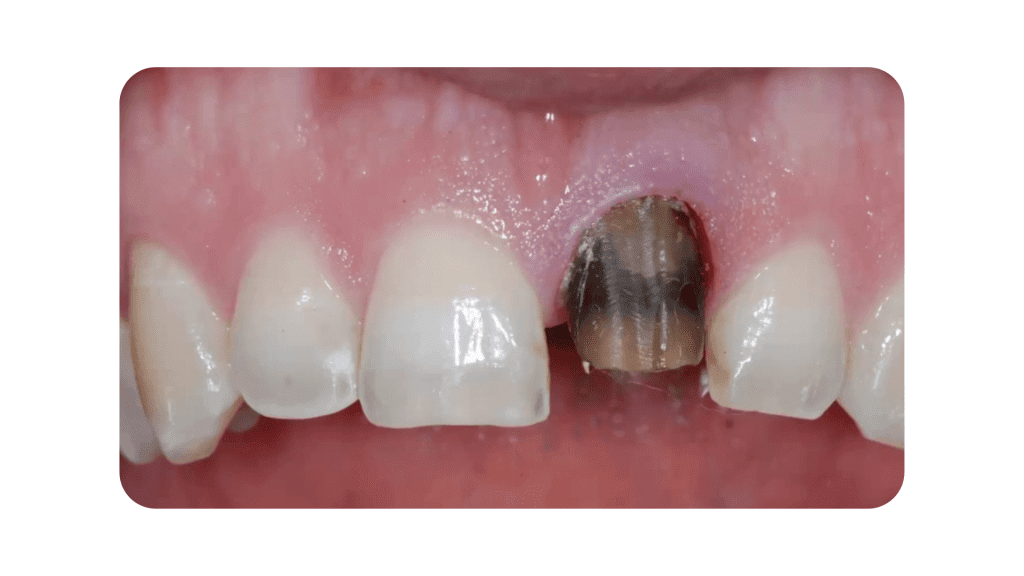
If you additionally require a crown to be placed on the tooth, there will be an additional cost associated with that. Dental crowns can be crafted from a variety of materials, and their prices can range widely depending on the size and kind of material that is utilized in their construction. There is a $1,000 to $3,500 pricing range for this item.
What does the average cost of a root canal without insurance look like?
If you have dental insurance, you might anticipate a reduction in the price that you will pay for a root canal. How much you have to pay is determined by the kind of insurance you have.
When compared to medical insurance, dental insurance is distinguished by the fact that its primary focus is on covering preventative care. Dental benefits, on the other hand, are typically restricted to routine checkups and cleanings, as well as tests and x-rays. Health insurance may cover unexpected costs. You may be partially reimbursed for additional operations such as root canals, but you will still be liable for paying a portion of the total cost.
Dental plan coverage
The majority of dental plans are organized in a 100-80-50 format. This indicates that preventative care is covered at a rate of 100%, basic procedures are covered at a rate of 80%, and major operations are covered at a rate of 50%. Root canals may be categorized as either a standard or major medical procedure, depending on the specifics of the insurance policy that the patient possesses. This indicates that the rate of coverage for your operation could be either 80% or 50%.
It is also essential to be aware that dental plans typically come with a sizable deductible that must be satisfied before any benefits are paid out. In the event that you have not yet paid the required amount out of your own pocket, you will be required to meet your deductible before your insurance company would pay any percentage of the remaining balance.
On the other hand, dental insurance will typically have a yearly cap on their coverage. Even though the plan would typically cover more, you will only receive the allotted amount if you have already spent a significant portion of your dental benefits this year and are getting close to reaching the maximum.
Imagine, for the sake of this illustration, that you have a yearly spending cap of $3,000 and that you have already spent $2,800 of it. Despite the fact that it would ordinarily cover $400 of the operation, the insurance company will only pay out $200 for it.
In addition, the majority of dental insurance plans come with a network of preferred providers. Find a dentist who is part of the network, and you will be eligible for cost savings. If you choose a physician who is not part of their network, your insurance company is likely going to pay for a much smaller portion of the procedure's total cost.
It is possible that your insurance will pay for half of the treatment if you have met your deductible and are not going to reach your limit. This will bring the total cost down to between $380 and $550 on average. In the event that you are fortunate enough to have it cover 80% of the cost, the amount that you will have to pay out of pocket might be as low as $150–220.
The price of the crown
If a crown is necessary, there will be an additional charge for that. Crowns are typically classified as major treatments; hence, dental insurance will typically only pay half of the cost. Your out-of-pocket expense for the crown could be reduced to between $500 and $1,750 as a result of this. Once more, this is predicated on the assumption that you have met your deductible and have not yet reached your yearly maximum.
Why does getting a root canal cost so much?
On the surface, getting a root canal would appear to be a treatment that is not overly complicated. Your dental practitioner will merely need to remove the infection, sterilize the tooth, and fill up any gaps that may exist.
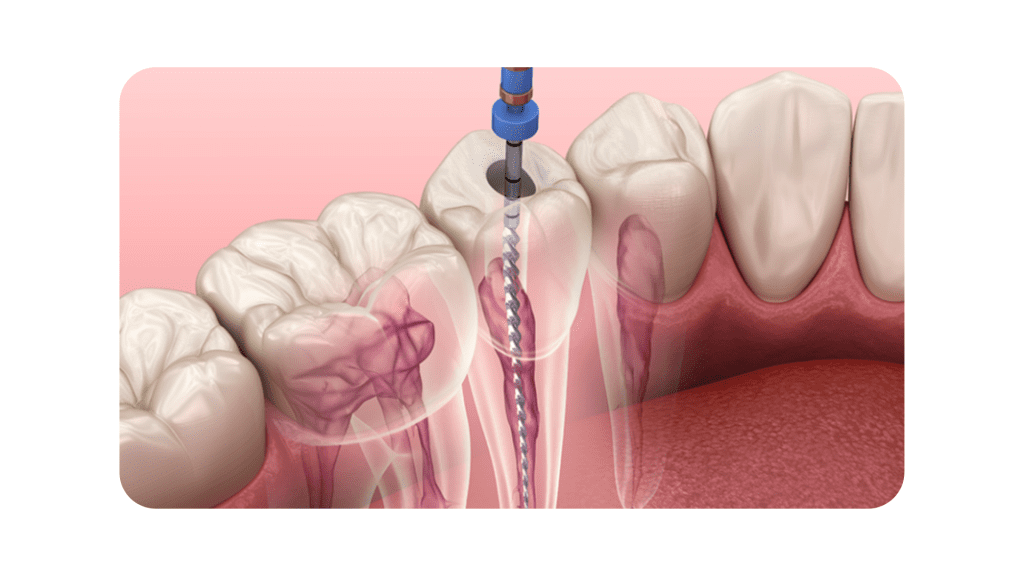
However, despite the fact that it could be considered simple, it is not simple at all. Inside of an infected tooth is where the infection is located. The majority of the time, determining the issue with the tooth only by looking at it from the outside won't do the trick. Just making the diagnosis of the infection requires very specialized techniques and machinery.
The process of removing the contaminated pulp and cleaning it up is a delicate one. The cost of the root canal procedure will increase if there is more than one root in the affected tooth, as is typical with molars.
There is also the possibility that you will need to visit the dentist more than once in order to complete the root canal procedure. Your procedure will cost more because it will require several visits to the dental office. This is especially important to keep in mind if you intend to add a crown on top.
In addition, it is important to note that the outcome of the treatment is affected by whether you have it done by a dentist or an endodontist. If your case is more complicated, you should consult an endodontist rather than a general dentist. Because of their extensive expertise and highly specialized training, they will be able to help make sure that everything goes smoothly. Having said that, this does come at an added expense.
Is it worth the trouble?
The expense of having a root canal performed may cause you to question whether or not the procedure is truly necessary. Having this surgery done, on the other hand, will prevent further damage to your teeth. If you allow the infection to continue to spread, you will eventually end up losing the tooth. When compared to the expense of tooth replacement options like dental implants, the price of having a root canal performed becomes more affordable.
Your oral health is very important to good dentists, which is why the majority of them will work with you to create a payment plan that will make the cost of your root canal more manageable. After all, getting a root canal is preferable than having a tooth extracted and replaced because it is better for your oral health.
Is getting a root canal a painful experience?
As was just indicated, the vast majority of individuals consider root canals to be at the very bottom of the list of acceptable qualities in a dental procedure. However, thanks to advances in dentistry and anaesthetic, root canals aren't nearly as painful as they used to be. You may compare the experience to having a thorough filling done on your tooth.
Your dentist will be cleaning out the entirety of the root of your tooth, a process that might cause some irritation to the tissue and nerves in the surrounding area. Because of this, it is normal to have some discomfort in the region once the surgery is over. Nevertheless, you shouldn't feel this ache for very long.
Consider the consequences of putting off the root canal treatment for a moment.
The condition of the damaged tooth will continue to deteriorate, resulting in pain in the nearby region and possibly infecting the teeth that are adjacent to it. You could have a toothache that doesn't go away, pain in your teeth when you chew or bite, or sensitivity to hot and cold temperatures. Think about how much longer you'll have to put up with the problem if you don't have it fixed.
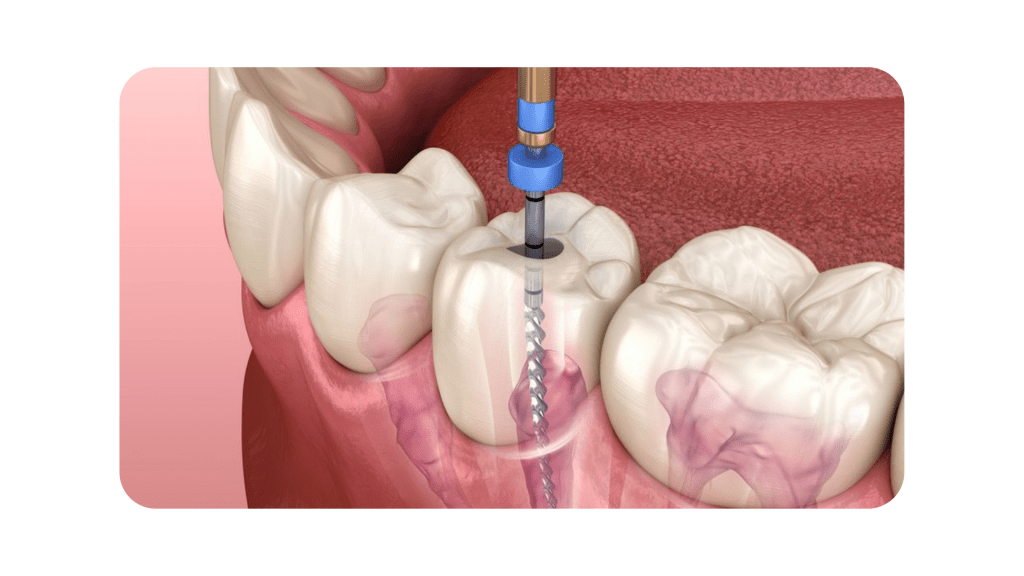
It's possible that getting a root canal doesn't sound like the most appealing thing in the world, but if you go to the correct dentist, the procedure won't be nearly as unpleasant as you might expect it to be. Helping you improve your dental health is our top priority, so let us put you in touch with a dentist in your area immediately.
Your oral health is very important to good dentists, which is why the majority of them will work with you to create a payment plan that will make the cost of your root canal more manageable. After all, getting a root canal is preferable than having a tooth extracted and replaced because it is better for your oral health.
Where in the vicinity can I get a root canal done?
Do you have any reason to believe that you will require this particular kind of dental work? How do you go about locating a dentist in your area? You want to find someone who is skilled in performing this particular dental operation. In addition, if you have dental coverage that you plan to utilize, you should look for a dentist who is part of your network so that the costs of your treatment can be reduced.
It's possible that getting a root canal doesn't sound like the most appealing thing in the world, but if you go to the correct dentist, the procedure won't be nearly as unpleasant as you might expect it to be. You can take your dental health to the next level with the assistance of Dr. Marianne Cohan and the rest of the experts at Summerlin Dental Solutions in Summerlin.
CLICK HERE TO SCHEDULE YOUR APPOINTMENT!
GET TO KNOW YOUR BEST DENTIST IN SUMMERLIN
Dr. Marianne Cohan was voted The Best Dentist/ Dental Office and Best Cosmetic Dentist from The Las Vegas Review-Journal in 2020 and 2021. She received her Doctor of Dental Surgery (DDS) from the State University of New York at Buffalo in 1992.

With an emphasis on cosmetic dentistry, complete makeovers, and implant dentistry, Dr. Cohan is committed to continuing education and feels that we never stop learning. Dr. Cohan takes pride in using high-powered magnification to perform minimally invasive restorative dentistry. She uses all the latest technological advances including digital radiography, digital photography, computer simulations, and high-resolution pictures of your proposed treatment on 55-inch screens. She also utilizes CBCT (cone beam) and laser technology.
Dr. Cohan is always available to her patients and is available for any dental emergency.
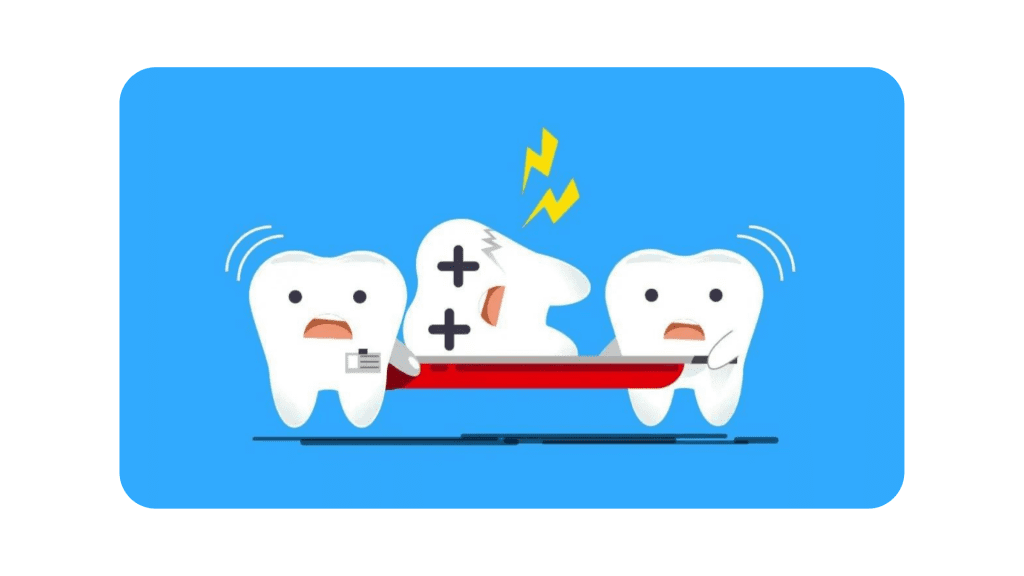
Alongside experiences such as ear infections and kidney stones, toothaches are among the most excruciating pains a person is ever likely to go through in their lifetime. The intensity of tooth pain can range from a subtle ache to a strong, throbbing pain; but, if you find yourself in the thick of a toothache, you will do whatever it takes to get care as quickly as possible.
However, if you are experiencing tooth pain or any dental emergency, should you go to an emergency room?
Is There Anything That Can Be Done for Toothache at an Emergency Room?
To begin, conventional medical facilities such as hospitals and emergency departments are not geared up to manage oral issues. Even though they have the ability to give antibiotics and pain medications and provide some early relief from the sensations of discomfort, they do not have the resources necessary to treat the underlying cause of your tooth problem. In the end, they will have no choice but to refer you to a dentist or an oral surgery clinic in order to receive actual therapy.
What does this imply for people who see the dentist?
Potentially, it can lead to more aggressive dental disorders due to a delay in care. Because a medical doctor has no other treatment options to offer, they are the only ones who may prescribe medication to their patients, which increases the risk that some of those patients will acquire an immunity to antibiotics. If you start to feel better, you may be tempted to put off getting treatment for longer than you should. This can lead to preexisting dental disorders being more difficult (and expensive) to address.
If, on the other hand, your dental emergency involves more than just a "tooth problem" — for example, a fractured jaw — then you do, in fact, need to get to the hospital as quickly as you possibly can. Having said that, situations requiring immediate dental care are quite uncommon.
Are Summerlin Dentists Open After Hours?
Even though the majority of dentist offices in Summerlin are only "open" during standard business hours, you may typically reach a member of their on-call staff at any time of day or night (24/7), in the event that you require emergency treatment. Call the number of your dentist's office and follow the voice prompts if you already have a dentist that you see regularly. You might be required to leave a message, but be assured that the recording is being closely listened to at all times. There is a possibility that after hours, the voicemail will include a different phone number with instructions for who to contact in the event of extreme discomfort.
Even while you won't need to meet me at the office after hours for the vast majority of dental emergencies, there are always going to be exceptions to any rule. You will have the added benefit of a dental professional who is already aware with your situation if you have an ongoing relationship with a family dentist that you know and trust. This relationship should be built on mutual respect. In the event that you are experiencing tooth pain, it is strongly recommended that you make an appointment with your dentist before going to the nearest emergency department.
The Urgency with Which You Should Obtain Dental Care
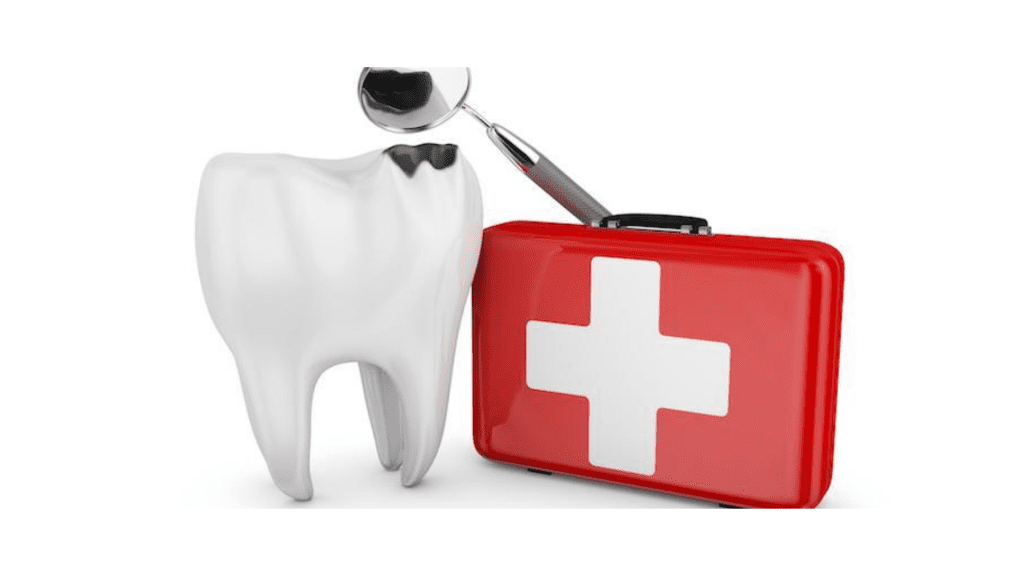
In the event that you are dealing with a genuine dental emergency, you should make every effort to see the dental office within the following one to two hours. When there is extreme pain, broken teeth, or other urgent situations that require immediate care, our clinic will, as a general rule, rearrange our schedule to accommodate patients who need emergency treatment. If you can make it to our clinic as quickly as possible, you'll have a higher chance of preserving your natural teeth.
In the event that you have tooth pain and visit a hospital, you incur the chance of having to wait in the emergency department or the waiting room for a significant amount of time while other patients with more serious medical conditions are seen first. Even if they are able to provide you with short-term pain relief through the use of medication, a doctor won't be able to treat your dental injury in a way that is permanent by the time they get to you. As a result, they will send you to a dentist's office even though they can't repair your dental injury permanently.
Easing the burden on hospital and emergency room staff
At the moment, a visit to the emergency room puts pressure on the medical personnel, who are already working hard to treat patients during a pandemic. In addition, it eliminates the requirement for the personal protective equipment (PPE) that must be saved for individuals diagnosed with COVID-19 or genuine medical crises. We only advocate coming to the emergency room of the hospital if you are experiencing something like the following, which is because the hospital does not have dental staff or the ability to treat the underlying cause of a dental emergency:
In any other case, seeing your family dentist is going to be the most secure option for treatment. Going to the dentist rather than the hospital can lessen the likelihood that you may come into contact with other people who may be contaminated with different diseases that can be transmitted from person to person.
Emergency Dentist in Summerlin
Dental treatment that is both family-friendly and reasonably priced is available whenever you need it with Summerlin Dental Solutions. You are the focus of our high-quality services, which are aimed at relieving any discomfort you may be experiencing as quickly as possible so that you may get on with your day as usual.
We strongly encourage you to give us a call if you find yourself in need of an urgent dental procedure in the Summerlin area. We are always happy to take on new patients! Even if you do not already have dental insurance coverage, we are able to provide you with low-interest and even interest-free financing on any service through CareCredit. Get in touch with us as soon as possible to receive prompt pain treatment.
CLICK HERE TO SCHEDULE YOUR APPOINTMENT!
GET TO KNOW YOUR BEST DENTIST IN SUMMERLIN
Dr. Marianne Cohan was voted The Best Dentist/ Dental Office and Best Cosmetic Dentist from The Las Vegas Review-Journal in 2020 and 2021. She received her Doctor of Dental Surgery (DDS) from the State University of New York at Buffalo in 1992.

With an emphasis on cosmetic dentistry, complete makeovers, and implant dentistry, Dr. Cohan is committed to continuing education and feels that we never stop learning. Dr. Cohan takes pride in using high-powered magnification to perform minimally invasive restorative dentistry. She uses all the latest technological advances including digital radiography, digital photography, computer simulations, and high-resolution pictures of your proposed treatment on 55-inch screens. She also utilizes CBCT (cone beam) and laser technology.
Dr. Cohan is always available to her patients and is available for any dental emergency.

Whether it’s a broken tooth or injured gums, a dental emergency can interfere with eating, speaking, or other day-to-day activities. According to the American Dental Association, you can sometimes prevent dental emergencies like these by avoiding the use of your teeth as tools or by giving up hard foods and candies.
Even if you take excellent care of your mouth, however, unexpected dental problems can still arise. Our team at Summerlin Dental Solutions is available 24 hours a day, seven days a week to assess and resolve your individual situation. When an emergency arises, you should immediately make an appointment with our office so we can put you at ease, give you the best possible care, and help you return quickly to your regular routine.
Damaged Teeth

For tooth damage in particular, don’t hesitate to call and schedule an emergency dental appointment. You should come in as soon as possible. However, if you have some time before your appointment there are a few things you can do to avoid further injury. If you break your tooth, clean the area well by rinsing it with warm water. To ease any discomfort, put a cold compress against your skin near the area with the affected tooth.
A dislodged tooth should be handled carefully in order to keep it in the best possible condition. Gently rinse off the tooth without scrubbing it and try to place it back into the socket of your gums. If it won’t stay in your mouth, put the tooth in a container of milk and bring it along to your "dental office near me".
Injured Soft Tissues
For other problems, such as bleeding gums or an injured tongue, cheek, or lip, the Cleveland Clinic recommends gently rinsing your mouth with salt water and applying pressure to the site with a moist strip of gauze or a tea bag. If you’re also experiencing some discomfort, you can put a cold compress on your cheek near the area of the bleeding. If the bleeding continues, don’t hesitate to contact our office so you can receive further help.
A dental emergency may catch you off guard, but Dr. Marianne Cohan at Summerlin Dental Solutions can provide fast, pain-free treatment. Follow the advice above and set up an appointment with us as soon as possible so you can put your teeth and mouth on the road to recovery.
Get to Know the Dentist
Dr. Marianne Cohan was voted The Best Dentist/ Dental Office and Best Cosmetic Dentist from The Las Vegas Review Journal in 2020 and 2021. She received her Doctor of Dental Surgery (DDS) from the State University of New York at Buffalo in 1992.

With an emphasis on cosmetic, complete makeovers and implant dentistry, Dr. Cohan is committed to continuing education and feels that we never stop learning. Dr. Cohan takes pride in using high powered magnification to perform minimally invasive restorative dentistry. She uses all of the latest technological advances including digital radiography, digital photography, computer simulations and high-resolution pictures of your proposed treatment on 55 inch screens. She also utilizes CBCT (cone beam) and laser technology. Dr. Cohan is always available to her patients and is available for any dental emergency.
CLICK HERE TO SCHEDULE APPOINTMENT


If you're racing through the snow to get to an emergency dental appointment, it's hard to be cheerful and healthy at this time of the year. And after a long holiday season, no one wants to begin their New Year's Resolutions with the words "Get Cavities Filled." How do you get through the most delicious of seasons with your enamel and fillings intact?
Normal people might consider candies and sweets to be bad, but we're not Scrooges around here! It's natural to want to indulge in a few treats over the holiday season, and we have some suggestions on how to do so guilt-free. But first and foremost, certain sweets are unquestionably more wicked than sweet. Which ones are more appropriate for use as table decorations rather than desserts?
If you've ever had a chipped or broken tooth as a result of inadvertently biting down on a piece of candy that was much harder than you anticipated, you know that extreme care should be used. We take our time with candy canes, allowing them to melt gently in our mouths as a result of this tendency. The disadvantage of this method, of course, is that we are now progressively bathing our teeth in sugar, which encourages the formation of plaque and cavity-causing germs.
Crushable sweets such as candy canes, peppermints, and other hard candies are possibly harmful to your teeth when you chew them, and they are certainly harmful if you allow them to dissolve slowly in your mouth.
Gumdrops that are glistening and vibrant in color. They are one of the most adorable ways to decorate for the holidays, whether they are used to roof a gingerbread home, trim a gumdrop tree, or just sitting in a bowl. And when we say "sweet," we mean it in the literal sense of the word. The majority of gumdrops are composed mostly of corn syrup and sugar, which are then rolled in more sugar.
However, the fact that they are high in sugar is not the only issue. A sticky substance that adheres between our teeth and around our gums, this is sugar in an extra-gummy form.
Despite the fact that they are packaged in attractive ribboned boxes, these incredibly sticky meals are not a treat for your teeth.
Chewy sweets not only attach to enamel, but they also stick to fillings, crowns (especially temporary crowns), orthodontic wires, and brackets. They are particularly bad for fillings. The last thing anybody wants is an unplanned dental or orthodontic appointment because their dental work has been damaged or displaced!
No Christmas decoration is more festive than a gingerbread house, which is made of chewy, sticky gingerbread and topped with hard sugar frosting, candy canes, and peppermints. Wonderful for your home's interior design, but not so great for your oral health. If you're in the mood for something hot, eat one gingerbread guy and leave your architectural masterpiece alone.

If you're looking for a reason to say no to fruitcake, here's a good one: most fruitcake is bad for your teeth. Candied fruit is, well, candied, while dried fruit is sweet, sticky, and chewy in texture and consistency. Of course, there are delectable outliers, but even a delectable fruitcake has a significant amount of sugar.
This wasn't a very cheerful list, to put it mildly. Here are some tips to help you enjoy your sweets in the healthiest manner possible as a small Christmas present from me to you.
Take the time to choose the best holiday treats for yourself, just as you would while shopping for the perfect gifts for your family and friends. If you are concerned about cavities, have a temporary crown, wear braces, have broken a tooth in the past, or are just generally concerned about your oral health, avoid sticky, hard, and highly sweet desserts as much as possible.
When it comes to your holiday hosts, what can you take with a thankful (and relieved) smile? If you make it dark chocolate, you'll really obtain nutritional benefits such as magnesium and antioxidants, which should alleviate any concerns about eating soft chocolate on occasion. Cakes, cupcakes, cookies, and pies are all created with a lot of sugar, but hey, it is the holiday season, so why not indulge? Just make sure to follow our next few suggestions to avoid feeling guilty about that slice of cheesecake.
Saliva has a purpose other than just keeping our mouths from becoming dry. It also aids in the prevention of cavities by washing away food particles and neutralizing the acids produced by food and bacteria, both of which are known to cause enamel damage.
If you eat dessert with your dinner, you will benefit from increased saliva production throughout the meal. As a result of frequent snacking throughout the day, this acid-neutralizing capacity is significantly diminished.
After a meal or snack, particularly a sweet one, rinsing your mouth with water helps wash away the sticky sugars and carbohydrates, which oral bacteria turn into acids.
Brushing your teeth immediately after eating is always a good idea—well, nearly usually. For example, if you've been eating acidic foods such as citrus or colas, the acids in the meal may have weakened your enamel just enough to cause some possible enamel damage if you scour your teeth just after eating it. We often suggest waiting around 30 minutes before brushing to provide your enamel a chance to recuperate.
Every mouth, on the other hand, is unique. In the event that you have braces, if you have a tendency to have food trapped between your teeth or in your dental work, or if you have any other concerns, consult Dr. Marianne Cohan about the optimum times and techniques for holiday brushing.
You don't want to waste time hoping against hope that we will be able to accommodate your appointment at our Las Vegas dentist near you to treat a cavity or a damaged tooth. If you plan on indulging in seasonal goodies, write down your list of desserts and double-check it, and make a point of brushing and flossing more often as a result. Give yourself these two presents, and you'll be welcoming the New Year with a beautiful, healthy smile with Summerlin Dental Solutions. Sweet!